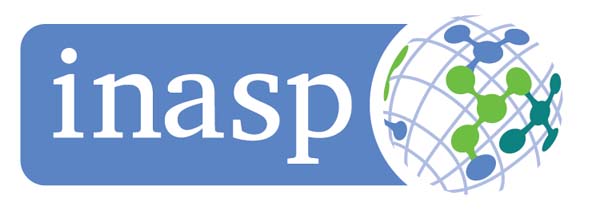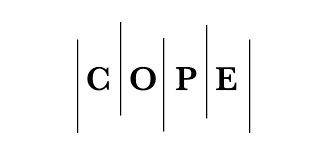Numerical Solution of Volterra's Integral Equations by Collocation and Taylor Method
DOI:
https://doi.org/10.29304/jqcsm.2024.16.21555Keywords:
Collocation method, Polynomials and Bessel series, Polynomials and Taylor series, Volterra integral equation systemAbstract
In this article, two numerical methods (collocation method and Taylor method) are introduced to solve Volterra integral equation system. In the collocation method, using Bessel polynomials and collocation points, we convert the device into a matrix form and solve the device using the matrix form and obtain an approximate solution for the device. This answer is such that the larger the N becomes, the approximate answer is closer to the exact answer of the device. In Taylor method, With the use of the Taylor series, the system of integral equations is transformed into a matrix equation, and by integrating the output of this new system, a system of algebraic equations is created. By working through this device, we can obtain a rough solution for the Integral Equations device. Using these two methods when the answers are polynomial, we can get real answers.
Downloads
References
A. Bellour and M. Bousselsal, "Numerical solution of delay integro‐differential equations by using Taylor collocation method," Math. Method Appl. Sci., vol. 37, (2014), pp. 1491-1506, doi: https://doi.org/10.1002/mma.2910.
H. Laib, A. Bellour, and M. Bousselsal, "Numerical solution of high-order linear Volterra integro-differential equations by using Taylor collocation method," Int. J. Comput. Math., vol. 96, (2019), pp. 1066-1085, doi: https://doi.org/10.1080/00207160.2018.1484112.
M. Sezer and M. Gülsu, "Polynomial solution of the most general linear Fredholm–Volterra integrodifferential-difference equations by means of Taylor collocation method," Appl. Math. Comput., vol. 185, (2007), pp. 646-657, doi: https://doi.org/10.1016/j.amc.2006.07.051.
C. T. Baker, "A perspective on the numerical treatment of Volterra equations," J. Comput. Appl. Math., vol. 125, (2000), pp. 217-249, doi: https://doi.org/10.1016/S0377-0427(00)00470-2.
J. Biazar and H. Ghazvini, "He’s homotopy perturbation method for solving systems of Volterra integral equations of the second kind," Chaos Solit. Fractals, vol. (2009), pp. 770-777, doi: https://doi.org/10.1016/j.chaos.2007.01.108.
J. Biazar, E. Babolian, and R. Islam, "Solution of a system of Volterra integral equations of the first kind by Adomian method," Appl. Math. Comput. vol. 139, (2003), pp. 249-258, doi: https://doi.org/10.1016/S0096-3003(02)00173-X.
P. Linz, Analytical and Numerical Methods for Volterra Equations. Society for Industrial and Applied Mathematics, (1985).
M. Gülsu, M. Sezer, and B. Tanay, "A matrix method for solving high-order linear difference equations with mixed argument using hybrid Legendre and Taylor polynomials," J. Franklin Inst., vol. 343, (2006), pp. 647-659, doi: https://doi.org/10.1016/j.jfranklin.2006.03.015.
K. Maleknejad and F. Mirzaee, "Numerical solution of linear Fredholm integral equations system by rationalized Haar functions method," Int. J. Comput. Math., vol. 80, (2003), pp. 1397-1405, doi: https://doi.org/10.1080/0020716031000148214.
K. Maleknejad and M. T. Kajani, "Solving linear integro-differential equation system by Galerkin methods with hybrid functions," Appl. Math. Comput., vol. 159, (2004), pp. 603-612, 2004, doi: https://doi.org/10.1016/j.amc.2003.10.046.
J. Pour-Mahmoud, M. Y. Rahimi-Ardabili, and S. Shahmorad, "Numerical solution of the system of Fredholm integro-differential equations by the Tau method," Appl. Math. Comput., vol. 168, (2005), pp. 465-478, doi: https://doi.org/10.1016/j.amc.2004.09.026.
M. Rabbani, K. Maleknejad, and N. Aghazadeh, "Numerical computational solution of the Volterra integral equations system of the second kind by using an expansion method," Appl. Math. Comput., vol. 187, (2007), pp. 1143-1146, doi: https://doi.org/10.1016/j.amc.2006.09.012.
A. Akyüz-Daşcıoğlu and M. Sezer, "Chebyshev polynomial solutions of systems of higher-order linear Fredholm–Volterra integro-differential equations," J. Franklin Inst., vol. 342, (2005), pp. 688-701, doi: https://doi.org/10.1016/j.jfranklin.2005.04.001.
M. Gülsu and M. Sezer, "Taylor collocation method for solution of systems of high-order linear Fredholm–Volterra integro-differential equations," Int. J. Comput. Math., vol. 83, (2006), pp. 429-448, doi: https://doi.org/10.1080/00207160600988342.
A. Akyüz and M. Sezer, "Chebyshev polynomial solutions of systems of high-order linear differential equations with variable coefficients," Appl. Math. Comput., vol. 144, (2003), pp. 237-247, 2003, doi: https://doi.org/10.1016/S0096-3003(02)00403-4.
S. Yalçinbaş, M. Sezer, and H. H. Sorkun, "Legendre polynomial solutions of high-order linear Fredholm integro-differential equations," Appl. Math. Comput., vol. 210, (2009), pp. 334-349, doi: https://doi.org/10.1016/j.amc.2008.12.090.
M. Sezer, "Taylor polynomial solutions of Volterra integral equations," Int. J. Math. Educ. Sci. Technol., vol. 25, (1994), pp. 625-633, doi: https://doi.org/10.1080/0020739940250501.
N. Şahı̇n, Ş. Yüzbaşı, and M. Gülsu, "A collocation approach for solving systems of linear Volterra integral equations with variable coefficients," Comput. Math. Appl., vol. 62, (2011), pp. 755-769, doi: https://doi.org/10.1016/j.camwa.2011.05.057.
H. H. Sorkun and S. Yalçinbaş, "Approximate solutions of linear Volterra integral equation systems with variable coefficients," Appl. Math. Model. vol. 34, (2010), pp. 3451-3464, doi: https://doi.org/10.1016/j.apm.2010.02.034.
A. Tahmasbi and O. S. Fard, "Numerical solution of linear Volterra integral equations system of the second kind," Appl. Math. Comput., vol. 201, (2008), pp. 547-552, doi: https://doi.org/10.1016/j.amc.2007.12.041.
T. Lin, Y. Lin, M. Rao, and S. Zhang, "Petrov--Galerkin methods for linear Volterra integro-differential equations," SIAM J. Numer. Anal., vol. 38, (2000), pp. 937-963, doi: https://doi.org/10.1137/S0036142999336145.
Downloads
Published
How to Cite
Issue
Section
License
Copyright (c) 2024 Mustafa Mohammed Khaleel Al khaykanee

This work is licensed under a Creative Commons Attribution-NonCommercial-NoDerivatives 4.0 International License.













